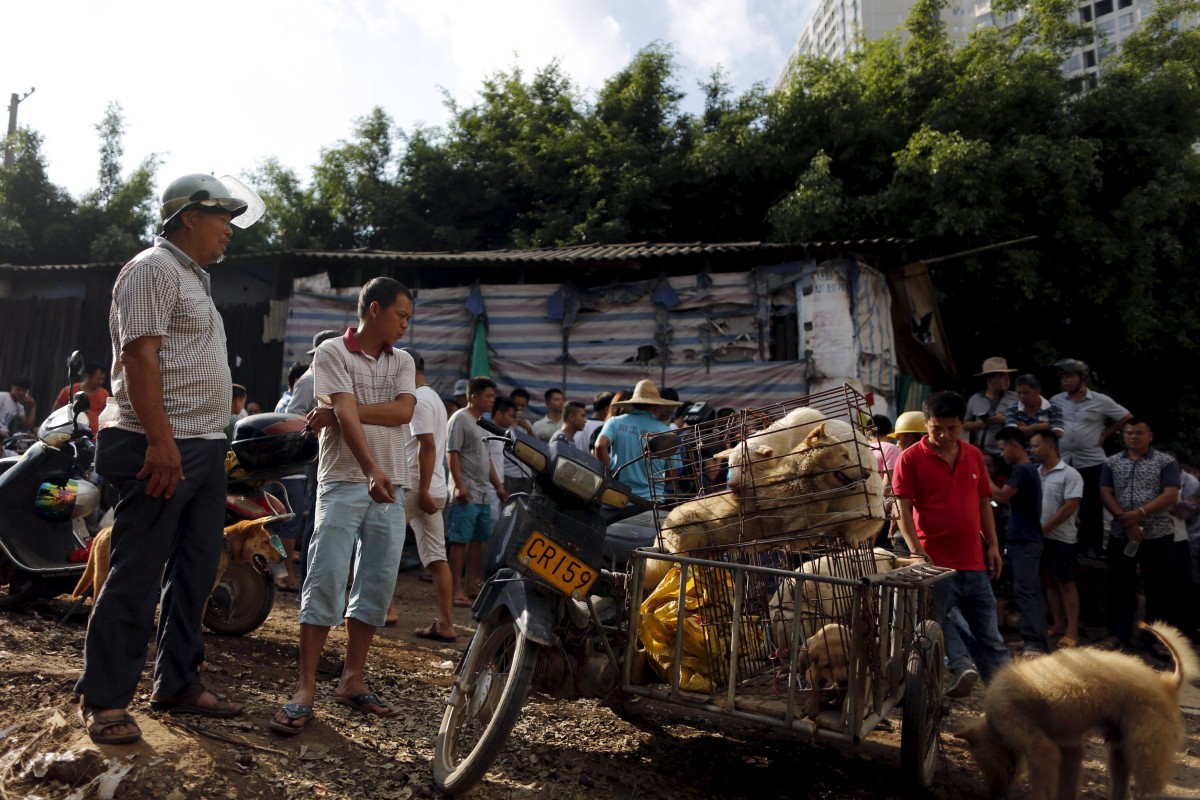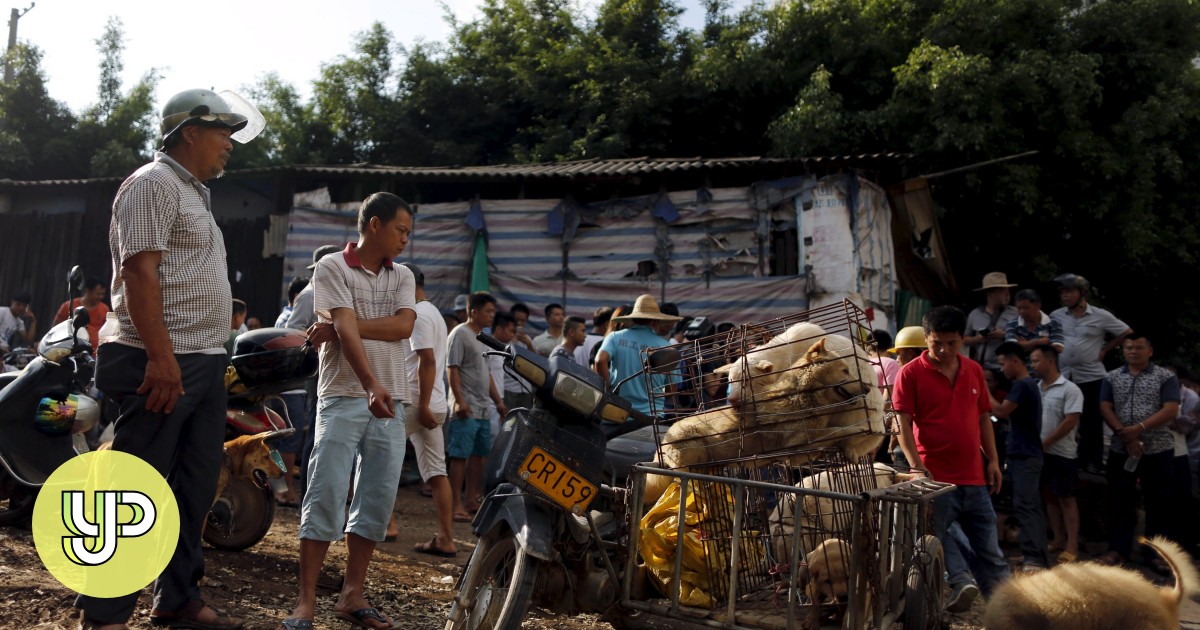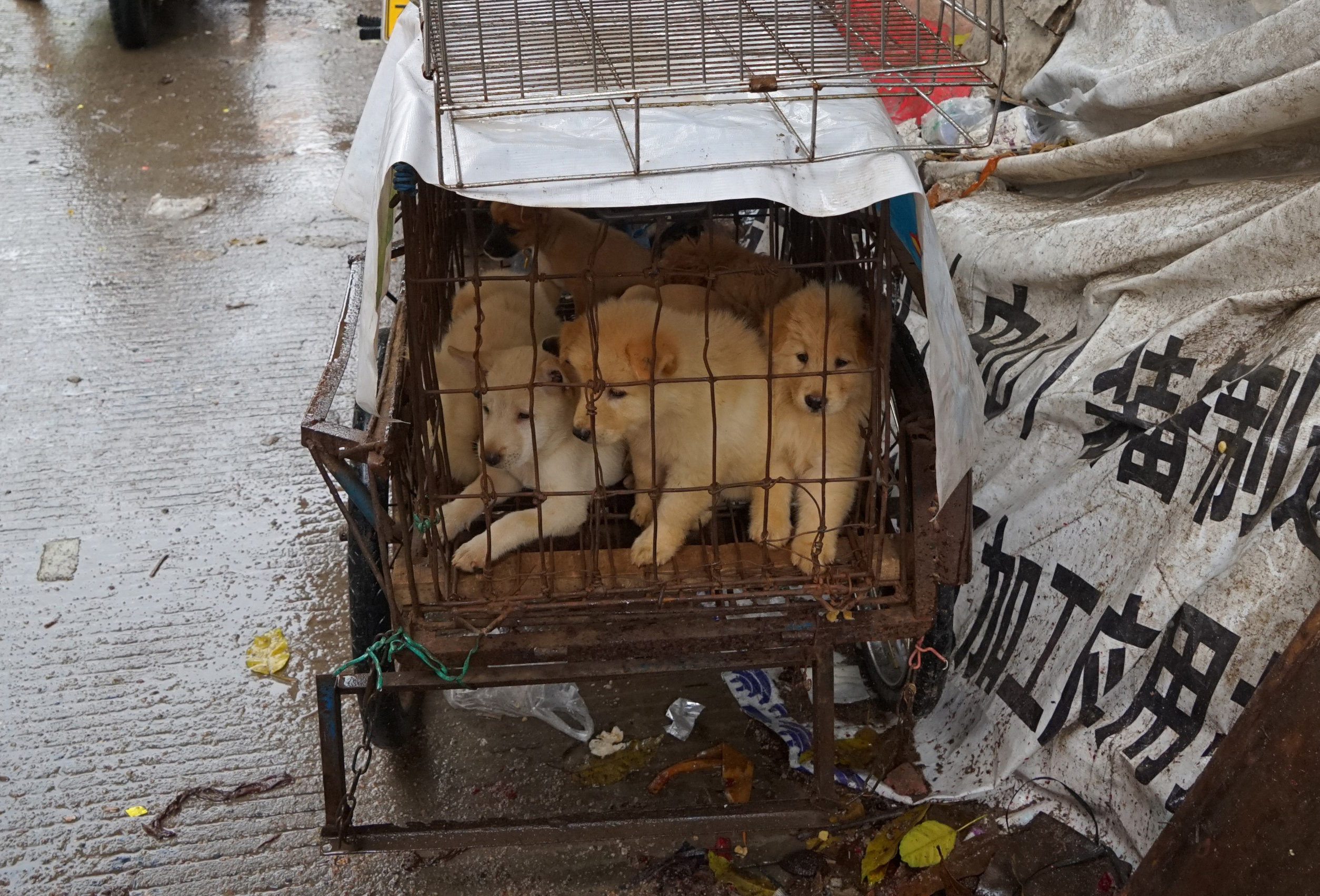

JOE SEEMS TO HAVE ENJOYED HIS DINNER
As many as 10,000 dogs, many of them strays or stolen pets, are slaughtered for the annual dog meat festival held deep inside the largely rural and Guangxi Zhuang Autonomous Region.
A group of about 25 animal rights activists briefly showed banners in front of the city government office, demanding an end to the festival, but they were quickly hustled away by unidentified men.
While many Chinese have signed online petitions seeking a ban on the festival, Yulin's dog market has become a site for clashes of supporters and opponents of the trade.
"There are all sorts of cultural norms about what you can eat, you eat turkey, so why are you trying to force us to not eat dog meat?" shouted one dog meat supporter.
Eating dog is good for your health, say supporters, and it is just like any other meat.
Apparently concerned about the adverse publicity, the local government says it has no ties to the event, issuing a statement saying it did not officially sponsor or promote the festival. It said authorities would tightly control public order and punish any incidents of stealing or poisoning dogs. Traders would no longer be permitted to slaughter dogs in public, place carcasses on display or serve meals outdoors, it said.
Despite such restrictions, restaurant owners said the festival continued to attract enthusiasts for the dish.
“Eating dog meat is a local tradition, it has nothing to do with the local government,” said a receptionist at the Longmen Dog Meat Restaurant reached by phone.

Yulin dog meat festival goes on despite outcry
For years people in China have been eating dogs, especially at an annual festival, which was held today. Now it seems the festival is going out of fashion



